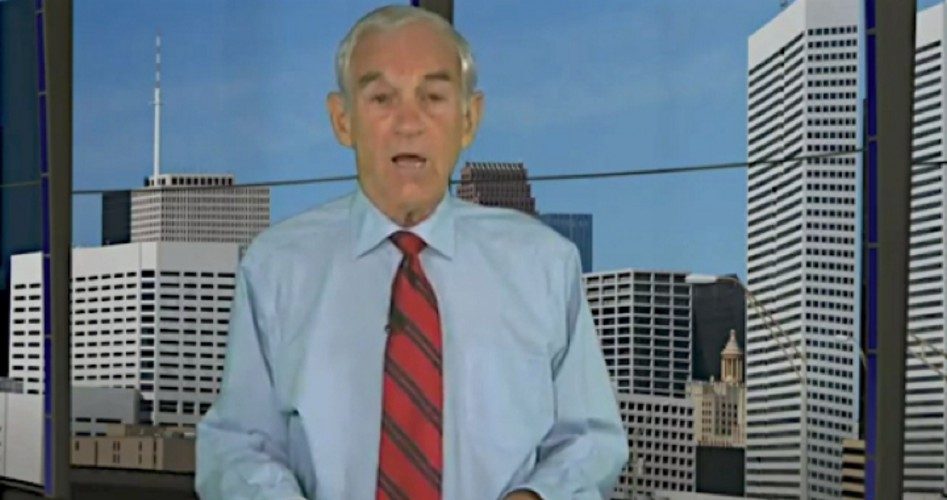
Word out of Iowa is that Ron Paul won a majority of that state’s delegates to the Republican National Convention to be held in August in Tampa, Florida. This is contrary to the story told on election night in January when first Mitt Romney and then, after a recount, Rick Santorum was declared the winner of the Hawkeye State’s caucus.
After what the Des Moines Register described as a “two-day tug-of-war marked by bouts of angry shouting,” backers of the Libertarian-leaning Texas congressman won 23 of the state’s 28 total delegates.
This isn’t the first such example of a Paul Paradox. State convention delegates elected pro-Paul slates in Minnesota, Maine, Nevada, and Louisiana, although Paul didn’t win the popular vote in any of those states (or any other state for that matter). The results are indisputable, but the million-dollar question is whether the Republican National Committee will allow these delegates to vote their consciences or will “bind” them to vote for the “presumptive nominee,” former Massachusetts Governor Mitt Romney.
Some who support Ron Paul have decided not to wait on the RNC to rule and have taken their case to the courts.
As we have reported, a lawsuit was filed by the law firm of Gilbert & Marlowe in Santa Ana, California, asking a federal court to determine:
… whether Plaintiffs are free to vote their conscience on the first and all ballots at the Federal Election known as the Republican National Convention or whether Plaintiffs are bound to vote for a particular candidate as instructed by Defendants’ State Party Bylaws, or State Laws, or the preference of political operatives….
Named as defendants in the lawsuit are the chairmen of every state’s Republican Party, as well as the state party itself.
In all a total of over 143 delegates (presumably national delegates, otherwise the federal court would have no jurisdiction) have joined or asked to join as plaintiffs in the suit.
Among other complaints, the lawsuit alleges that the RNC violated its own rules and applicable federal voting statutes by:
Certifying “unlawful slates of Delegates that were not elected in accordance with the US Statues and US Supreme Court Decisions cited, nor in accordance with the proper Bylaws of Defendants;”
Engaging “in a scheme to intimidate and harass Delegates who were supporting a Candidate that Defendants did not approve of;”
Forcing delegates to “sign affidavits under penalty of perjury with the threat of criminal prosecution for perjury as well as financial penalties and fines if the Delegate fails to vote as instructed by Defendants rather than vote the Delegate’s conscience as mandated by the US Statutes and US Supreme Court;”
Denying “a quorum or to manipulate Delegates supporting a particular Candidate to be deprived of a fair election as a Delegate;”
Using “threats of violence including dressing security type people in dark clothing searching out supporters of a Candidate Defendants do not approve of to harass and intimidate said Delegates from voting their conscience;”
Unlawfully using “State Bylaws and in some cases State Laws to harass and intimidate Delegates from voting their conscience;” and
Altering “the voting ballot results to fraudulently reflect an outcome that is inconsistent with the actual voting ballot results for the purpose of certifying a fraudulently selected slate of Delegates to support the Candidate of Defendants’ choice rather than the Delegates properly elected.”
If the court does not issue an immediate injunction blocking these actions, the plaintiffs argue, they will suffer irreparable harm.
This notion of “binding” delegates to vote for one candidate despite their own allegiances (and the allegiances of those state convention delegates who voted for them) is one of the many bones of contention being fought over by those loyal to Ron Paul and those who accept Mitt Romney as the “presumptive nominee.”
The RNC argues that the winner of the popular vote (Mitt Romney in most cases) should also received at least a corresponding percentage of that state’s delegates elected at the state conventions, while the plaintiffs in this lawsuit (and the Paul campaign itself) insist that delegates are empowered by RNC Rule 38 to vote their consciences and cannot be forced to vote for the winner of the state primaries.
Promising to “carry on the fight,” the executive committee of the Lawyers for Ron Paul is actively seeking new plaintiffs to add to the lawsuit and they continue to promote the message that the war is not over and that despite the fact (as they see it) that Ron Paul’s national campaign staff has “thrown in the towel,” the grassroots supporters around the country still have the power to get their man into the White House.
Assuming for a moment that a federal judge rules that all Republican delegates to the national nominating convention are unbound and may vote for the candidate of their choice, what would the practical effect of such a holding be? Ron Paul himself has conceded that he does not have the numbers necessary to put him over the top and onto the top of the ticket. Is there any scenario that can convert these victories into anything other than the Pyrrhic variety?
First, Ron Paul maintains that he is not ready to follow in his senator son’s footsteps and endorse Mitt Romney.
In an interview on CNN’s The Situation Room, Ron Paul said, “No. Not ready. No way,” when asked by the host Wolf Blitzer if he was ready to throw his support behind Romney. That firm denial seems to indicate that despite having suspended his active campaign in May, Ron Paul remains a candidate for president.
Then again, there is the message to supporters posted last week on YouTube where Ron Paul told viewers that he had “a lot of good news,” describing a roster of goals for all the delegates and alternates elected to represent him at the Republican National Convention in Tampa in August.
First, delegates should work to “influence the platform.” Next, they should “fight for our values,” and finally, “do whatever they can to promote the cause of liberty.”
Running about eight minutes, Dr. Paul’s message does not sound like an attempt to either compromise or concede. He sounds confident that the fight for liberty and limited government will continue.
But without him in the Oval Office.
Another Paul Paradox is the man’s adamant denials that he will mount a third party campaign for president. This hardline would seem to indicate that Ron Paul considers the GOP to be the most reliable vehicle for taking his message to the masses. Why then does he refuse to endorse the Party’s candidate?
Principle. The answer is that in a world where pseudo-statesmen trip over themselves to be the first to get to the Party’s altars so they can sacrifice all their principles to the god of Power, Ron Paul stands back, humbly and boldly proclaiming liberty like the voice of one crying in the wilderness.
Whatever the outcome, when the smoke clears on this Republican war of ideas, there is little doubt that there will remain yet alive millions of American freedom fighters devoted to the cause of the Constitution and to the protection of our civil liberties.
Many of these patriots are young, so they must be reminded that there will come others from their ranks that will run for office and promote this cause and stand firm against the Establishment’s gradual march toward absolutism.
Truly, Ron Paul is not the first and he will not be the last candidate to lead the fight for freedom, but he may be the best.



